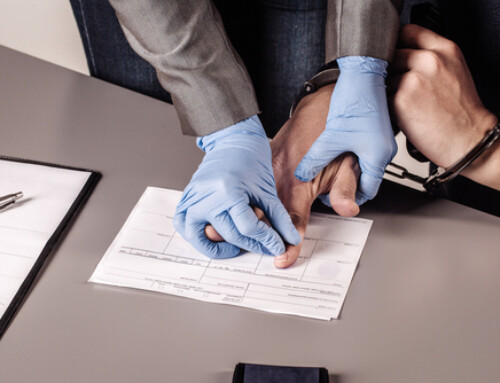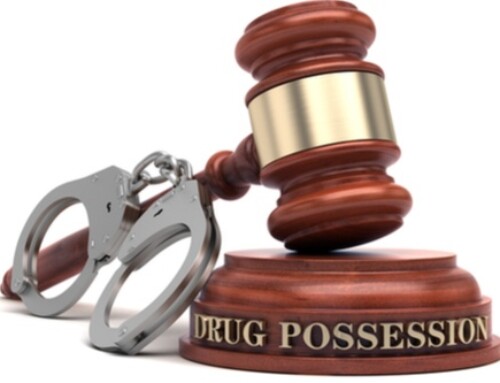Facing a criminal charge in South Carolina is an event that, hopefully, you will not experience more than once in your life. The consequences can be severe, and, yet, in many respects, the protections that are in place to protect defendants in South Carolina’s criminal justice system are minimal. The process is extraordinarily complicated, various complex legal principles apply, and prosecutors spend their entire lives trying to secure convictions.
Then, there’s you. You made one mistake, and now you are facing the prospect of your life-changing forever. With the odds stacked against you, what can you do to protect yourself?
What Should You Do After Being Arrested in South Carolina?
Here are ten steps you should take to mitigate your risk of being convicted:
Step #1: Exercise Your Right to Remain Silent
First, exercise your right to remain silent. Once you are placed under arrest in South Carolina, you are protected by the Fifth Amendment’s privilege against self-incrimination. While you must identify yourself if asked, you do not have to answer any other questions, and you generally should not do so unless advised otherwise by your attorney.
Step#2: Exercise Your Right to Legal Counsel
You should also exercise your right to legal counsel. As a criminal defendant, you have the right to be represented by an attorney under the Sixth Amendment to the U.S. Constitution. If you state that you are exercising your Sixth Amendment right after being taken into custody for questioning, you cannot legally be denied access to your attorney during the interrogation.
Step #3: Take Notes About Your Arrest
There are different types of defenses to criminal charges in South Carolina. While some defenses involve challenging the factual allegations against you (i.e. presenting an alibi or arguing that the prosecutor’s office does not have the evidence required to meet its burden of proof), other defenses involve challenging the actions of the police and prosecutors prior to, during, and/or after your arrest. As a result, it is important to try to remember as many details about the circumstances surrounding your arrest as possible, and it is a good idea to take notes that you can give to your attorney.
Step #4: Make Sure You Don’t Get Arrested Again
In addition to the mistakes, we discussed previously; you also need to avoid the mistake of getting arrested again. When trying to convince the judge that you slipped up and it won’t happen again, you will have a hard time looking credible if you have another charge pending. Stay on the straight and narrow, and keep some distance between yourself and any friends or family members who might get you into trouble.
Step #5: Make Sure You Know Your Court Date
If you have been arrested, this means that you have a court date. You need to make sure you know your court date, and you need to make arrangements to be there on time. You should meet with your attorney before your court date arrives – ideally as soon as possible – as he or she will need time to prepare.
Step #6: Make Sure You Know the Charge(s) Against You
This one may seem obvious, but it is not necessarily as straightforward as most people think. The South Carolina Code outlines numerous criminal offenses, many of which are very closely related. If you are facing multiple charges, you must successfully defend against each and every charge in order to avoid a conviction. Additionally, since certain crimes have “lesser included offenses,” you need to make sure that your defense strategy does not leave you exposed even if it is “successful” at trial.
Step #7: Plead Not Guilty
Unless advised otherwise by your attorney, you should plead “not guilty” at your arraignment. You have the absolute right to do so, and you cannot get in trouble for “lying” if you plead not-guilty even though you believe you committed a crime. Entering a “not guilty” plea will ensure that you retain all of the defenses you have available, and it will give you and your attorney the opportunity to fight your case to the fullest extent possible.
Step #8: Stay in Close Contact with Your Defense Attorney
Speaking of your attorney, you should stay in close contact with him or her throughout your criminal case. In order to present the strongest possible defense strategy on your behalf, your attorney will need you to remain actively involved. Respond promptly when your attorney calls, texts, or emails, and feel free to reach out whenever you have questions or information about your case.
Step #9: Know What to Expect as Your Case Progresses
There are several steps in the criminal justice process in South Carolina. As your case progresses, it will be important for you to know what is coming next. Once again, your attorney can help, and you should be sure to carefully follow your attorney’s advice at each step along the way.
Step #10: Be Prepared for What Comes After Your Trial
Ideally, you will have strong defenses that allow you to secure a favorable outcome without your case going to verdict. But, if your case does go to verdict – and if you are found guilty – you will need to be prepared to deal with the consequences. While this might mean accepting your sentence, it could also mean filing an appeal or a petition for post-conviction relief. Both of these are subject to their own unique rules and requirements; and, if you need to challenge your conviction, you will want to begin working with your attorney immediately.
Schedule a Confidential Initial Consultation in Charleston, SC
The criminal defense attorneys at Deaton Law Firm represent clients facing all types of criminal charges throughout South Carolina. If you are facing charges and would like to speak with an attorney, we encourage you to call us or contact us online for an initial confidential consultation.






